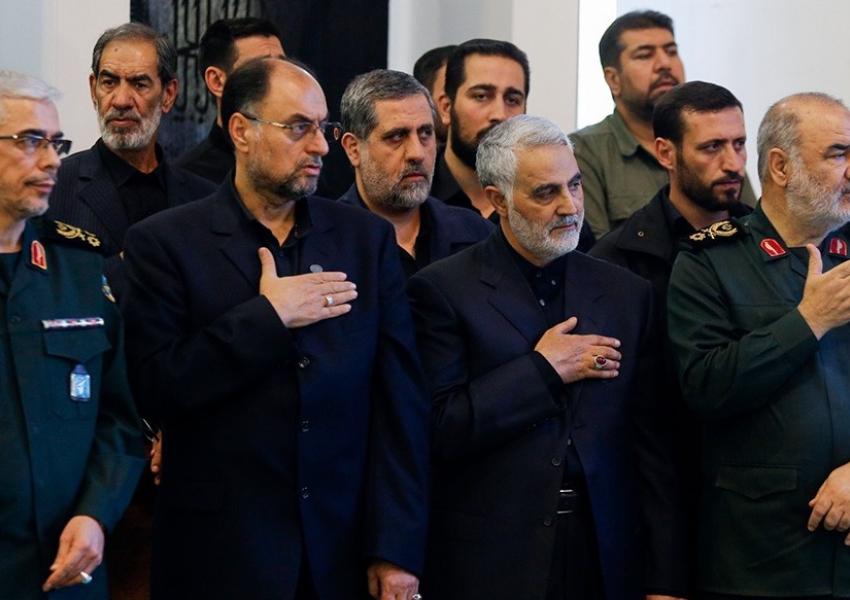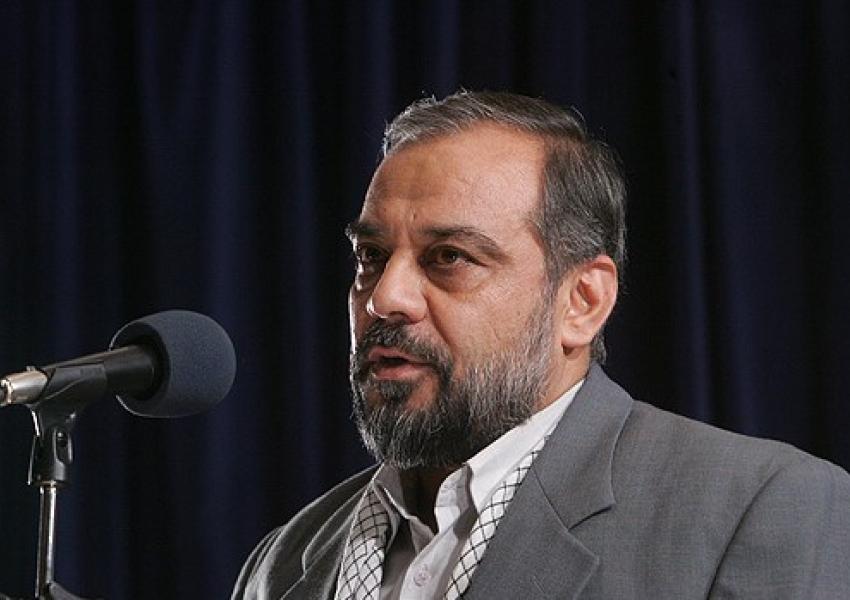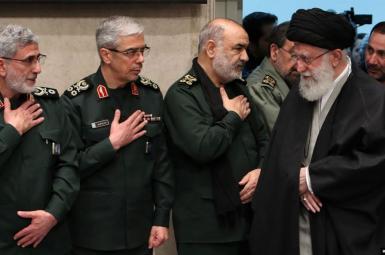
Iranians Contest Soleimani Legacy As First Death Anniversary Nears
A former deputy-commander of Iran’s Revolutionary Guards has said that Qasem Soleimani, who was killed by a United States air attack in Baghdad on January 3, 2020, “produced financial resources” whenever he encountered problems in receiving government funds.
Mohammad Bagher Zolghadr, who has been appointed to a series of positions by Supreme Leader Ali Khamenei, told Tasnim news agency on Tuesday [December 29] that Soleimani was one of Khamenei’s “discoveries.”
As commander of the Islamic Revolution Guards Corps (IRGC) Qods Force, Soleimani was Iran’s main architect of a network of state and non-state allies in the region to expand the Islamic Republic’s influence. Zolghadr did not elaborate on the ‘financial resources’ Soleimani produced, telling Tasnim, “I do not need to mention details.” He emphasized that the late commander never accepted a deadlock if the government did not finance a “project.”
With the first anniversary of Soleimani’s death days away, state-controlled media in Iran is full of stories portraying Soleimani as an Iranian hero and international Islamic hero. But as Iranian officials and regional groups close to the Islamic Republic praise Soleimani, information on Iran’s military and financial support for groups such as Hezbollah in Lebanon and Hamas in Palestine is leading to criticism from Iranians opposed to the regime.

Mohammad Bagher Zolghadr, former deputy-commander of IRGC
Hezbollah leader Hassan Nasrallah declared in an interview on December 27 that Soleimani was instrumental in providing large amounts of money from Iran’s oil revenues to Hezbollah, in addition to weapons and missiles. Estimates of Iran’s past financial assistance to the group range from $500-700 million annually, although Iran’s current ability to provide money is restricted given its dire financial situation resulting from US sanctions.
Nasrallah disclosed that after the 33-day war with Israel in 2006, in which rights groups said over 900 Lebanese civilians were killed, Iran paid for one year the rent and living expenses of 200,000 families whose homes had been destroyed or damaged by Israeli attacks. The fact that Iran paid up to $30,000 to families in 2006 has long been public knowledge, but the cost of the assistance is staggering: If the average handout to each family was $20,000, in a country of 4 million people, Iran spent at least $4 billion dollars that went mainly to the Shiite community.
In an interview also on December 27, with Iran’s state-run Arabic news channel Al-Alam, Mahmoud Al-Zahar, a founding member of Hamas, said Soleimani had passed him suitcases containing $22 million during a visit to Tehran in 2006 as foreign minister in the Palestinian administration of prime minister Ismail Haniyeh.
This led to a hashtag saying “Suitcases full of dollars” in Persian tweets and social media, criticizing the Islamic Republic for caring more about non-Iranian groups in the Middle East than its own population.
During anti-government protests in 2017-2019, Iranians on the streets chanted slogans against sending money to Hezbollah, Hamas, Yemen’s Houthis and against spending resources in Syria to help keep President Bashar al-Assad in power. Iranian critics bemoan unemployment and poverty in the country, demanding money be spent on Iran’s citizens.
Living standards have plummeted since 2018 mainly due to US sanctions, with ordinary Iranian workers earning $100-150 a month, which is inadequate for basic necessities. With oil exports reduced significantly since US sanctions were imposed in mid-2018, Iran’s assistance to regional allies and proxies has declined.








